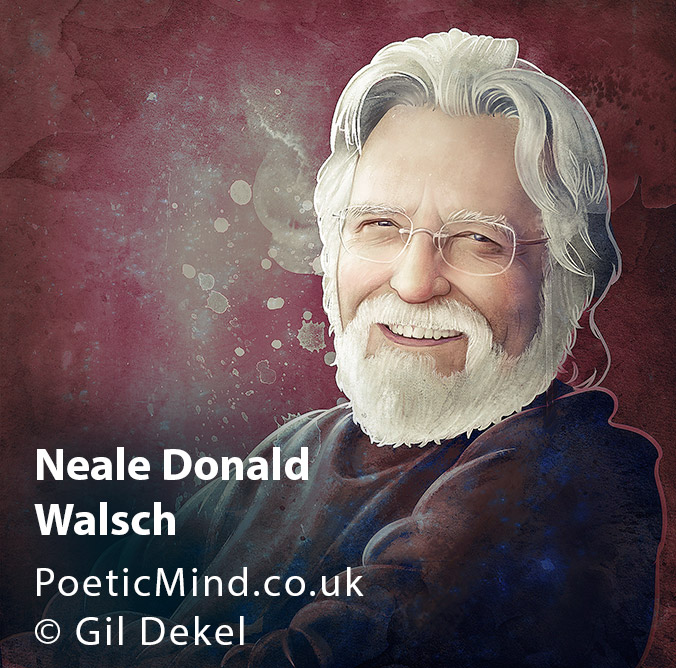
By Dr. Gil Dekel.
96
Right now our instincts are telling us that we are destroying the planet, and that we need to change our actions – yet, we tend to ignore this knowledge; we tend to continue destroy the world.
Life will not allow this, and thus Life will change its form and adapt itself in order to become sustainable. Individuals who ignore this change, will change their form, and die. The current form of Life is now pushing Life to become sustainable, by changing its form, which means that people will have to change theirs, as well.
99
Things such as rocks are not ‘dead’ objects. All objects are a living system.
101
God is Life. Thus, we cannot serve God by destroying Life.
104-105
The Universe is a Living System. The Earth is small part of this system, and so we are a small part. And inside us there are smaller parts. Yet, all parts are important, as they make the whole of us, and each part makes the whole. Each part is a living thing, a holder of Life.
Children can easily be taught that they are part of the bigger system. We can easily teach them to value Life, by showing them that they are a part of it. By telling them that the universe is a Living System, and that the Earth is living – and that they are a living part of Life; One with God and each other.
Stars, molecules and galaxies all make ‘morphic fields’ that animate the Universe, and give it their habits and capacities. Thus, they are alive, just as plants and people are alive.
The Universe is a living system. The Universe’s parts, such as stars and people – are tiny living things (that together make the Universe).
108
The world’s problems are not political or related to economy, but spiritual. What people believe about each other, about God, and about Life – set people’s behaviours.

Portrait of Neale Donald Walsch (copyrights © Dr. Gil Dekel)
109
By not bothering to change things in our world today, we create things we do not wish for. Yet, when it comes to survival, when it comes to our lives and our beliefs – we will eventually choose life and will have to abandon our beliefs that are killing us.
111-112
Our biggest misconceptions are that:
- God is in need of something. (In truth, God needs nothing).
- God can fail to get what God needs. (In truth, God has all God needs).
- God has separated humans from God, since humans did not give God what God needs. (In truth, God is connected to everything, all the time).
- God still needs something, and requires humans to provide it to God. (In truth, God does not require a thing).
- God will destroy humans if they do not provide it. (In truth, God will never hurt people).
These fallacies are destructive. Moreover, they yield more fallacies. And so we also believe that:
- Humans are separated from each other. (In truth, we are all one).
- There is not enough to sustain all people. (In truth, there is more than enough).
- We must compete over resources. (In truth, we need to share, not compete).
- Some humans are better than others. (In truth, all people are equal).
- It is appropriate to solve differences by killing. (In truth, killing does not solve problems).
The fallacies are errors in beliefs. In truth, we are not terrorized by other people, but by our own beliefs.
Religions – what we believe. Our beliefs create our behaviours. Even people that do not believe in God, hold belief which create their behaviours.
115
We can start change our beliefs by challenging them. Examine them.
121
Controversy does not have to lead to conflict.
122
A fanatic person – a person who feels that they are not heard, and that their point of view is not honoured. Most people do not require that their point of view will be accepted, but they do require that their views will be honoured.
To dishonour another person’s point of view is to try to disappear it. To disappear another person’s point of view is to abolish the person. Thus, it all leads back to survival – people will not allow you to try an ‘end’ them.
129
People believe that they are not supposed to challenge God, nor challenge what they believe. We do not have to believe in what we believe… We can change it…
131
We have the power to abuse our power and to grant ourselves an authority to destroy things, calling that authority ‘in the name of God’. We then believe that God accepts only one side of a conflict. Such belief gives us moral authority to kill. Such belief reaffirms the moral authority we gave ourselves to go to wars…
The stability of our society depends upon us granting ourselves this authority, and claiming it is given to us by God Himself… Yet, such beliefs are killing us, and our ‘God’ is killing us.
23 Oct 2015. © Gil Dekel.
This is a summary of key points and concepts from ‘Tomorrow’s God’, a CwG book published by Hodder & Stoughton, London, UK, 2004, ISBN 0-340-830239. www.cwg.org


 - Reading with Natalie, book here...
- Reading with Natalie, book here...